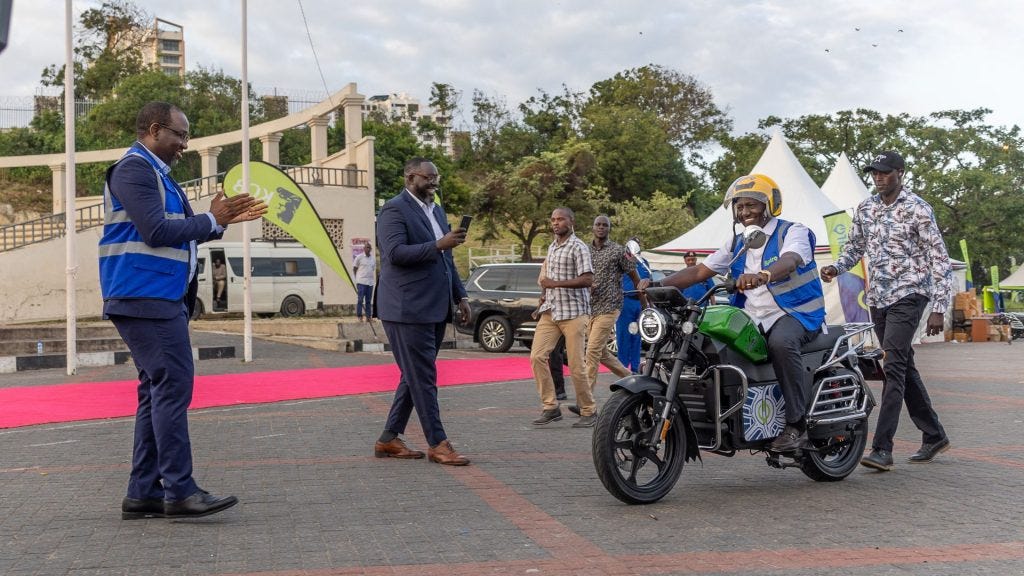💸 VanMoof Finds Buyer
McLaren Applied subsidiary Lavoie acquired the bankrupt Dutch ebike company.
Before we start, our biggest Micromobility America conference yet is less than 2 months away. And right now you can save $650 on all-access tickets during our Labor Day Sale. Come network, ride, learn, and connect. Book now before prices go up.
What You Need to Know Today
America has the world’s best air safety in the world… too bad it can’t bring that same energy to keeping road users alive. “In the last decade, two passengers have been killed in accidents on US commercial airlines. Over the same period, more than 365,000 Americans have been killed by cars.”
Here’s a novel idea for reducing car deaths: enforce traffic laws. One year after introducing its new 24/7 automatic traffic ticketing system, New York City speed violations have reportedly dropped by 30%.
Cult ebike brand VanMoof has been bought out of bankruptcy by Lavoie, a company that makes high-end scooters based on McLaren Applied’s Formula 1 technology. VanMoof’s bankruptcy earlier this summer had left its more than 190,000 riders in limbo. While the price of the acquisition is unknown, Lavoie’s leaders say they will spend “tens of millions” on the transaction and other investments aimed at injecting stability into VanMoof’s operations, in part by relying on third-party retailers for servicing and maintenance.
Lavoie’s Eliott Wertheimer spoke to us a few weeks ago about the company’s high-tech vision for micromobility and its strategic relationship with McLaren Applied. Listen below.
The global electric bike market is expected to reach $120B by 2030, according to a new market forecast. To put that in perspective, the market was valued at $37B in 2022, with Asia Pacific making up the biggest slice of the pie at 42.5%
New York City’s ebike trade-in program—designed to help delivery workers swap low-quality, fire-prone bikes for safer, industry-certified models—is off to a rocky start. Since July, only three bikes have been traded in. Experts say the city’s 60,000+ delivery workers aren’t participating due to language barriers, cost of the trade-ins, and a slow and somewhat difficult approval process.
On the latest episode of Ride On! James talks to Julie Vets about why it is so hard to find fashionable reflective outwear for riding and why her company, GOFLUO, is declaring war on the ugly yellow safety vest. Listen in.
London’s ultra low emissions zone (ULEZ) has expanded from a small area of the central city to the entirety of the capital. The ULEZ is an area in which polluting vehicles must pay a fine, thereby encouraging the use of active transport, micromobility, electric cars, and public transit.
The State of Washington is putting together a rebate program for people looking to buy or borrow ebikes. The vouchers, which are worth up to $1,200 and will be available next year, belong to a $2B spending package to cut greenhouse gasses.
Kenya has revealed the details of its ambitious new plan to encourage electric motorbikes adoption through a manufacturing partnership with the African startup Spiro. “[President] Ruto said Kenya currently had 1,000 of the new bikes, with another 10,000 on their way, and that Spiro had established a plant with the capacity to assemble 1,000 of the vehicles daily.”
Buycycle, a Munich-founded online marketplace for used and refurbished bikes, is expanding to the U.S. after raising more than $3M in seed funding
In other startup funding news, Kite Mobility, a Canadian service that gives residents of private communities access to electric cars and bikes, has secured $3.5M in seed capital to accelerate growth.
The New York Times is out with another hit piece against ebikes. Their grievance this time is that battery-powered bikes are in and of themselves dangerous for teens, failing to see that the reason it is unsafe for kids to bike in this country is that they have to share the road with big, fast cars. Side note: The latest NYT piece zeroes in yet again on one company in particular for scrutiny…. How exactly did Super73 become the ebike brand that old fogies love to hate?
The California Highway Patrol is rolling out an ebike training program to teach riders the best safety practices, including maneuver skills and rules of the road. The program comes in response to the growing number of bicycle-related crashes in California, numbering more than 9,600 last year. While it’s nice to see the state giving more resources to safety, stats like that beg the question: Is it the ebikers who need re-education—or the motorists?
Rome is planning to cut the size of its shared scooter fleet by more than one-third.
Oslo has more rental scooter rides per capita than any city in the world. What lessons can other cities learn from the Norwegian capital about fostering shared micromobility?
To solve the problem of ebike theft, a new monthly subscription service from the U.K. called BackPedal is using GPS tracking and on-the-ground recovery teams to locate and reclaim stolen bicylces.
… and in Finland, volunteer patrols are chasing down and returning stolen bikes using old-fashioned detective work.
A wheelchair user and cyclist wrote a public letter complaining about bike lane opponents who use people with disabilities to reinforce their arguments for expanding car access.





